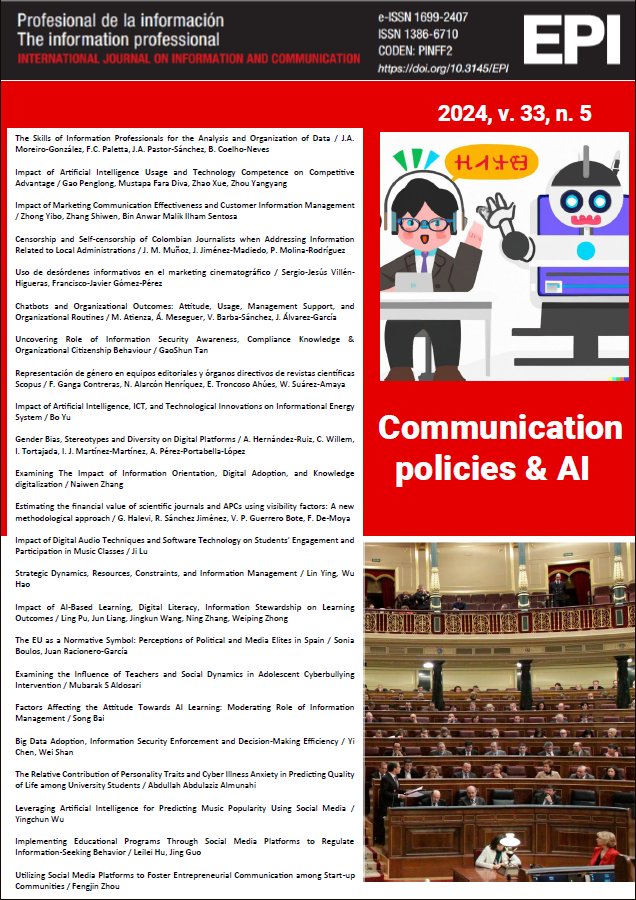Revolutionizing Educational Systems Through the Belt and Road Initiative: Integrating Bashu Culture and ProjectBased Learning Pedagogy
DOI:
https://doi.org/10.3145/epi.2024.ene.0523Palabras clave:
Belt and Road Initiative, Educational Informatics, Cultural Integration, Systems Theory, Project-Based Learning, Bashu CultureResumen
The cultural inclusion of education systems is important to create cross-cultural understandings and to facilitate the integration of diverse identities when considering the context of the Belt and Road Initiative (BRI). This calls for the development of innovative informatics frameworks for supporting cultural interactions and long-term cooperation. Ultimately, there is no scaled model to introduce cultural diversity to the mainstream, notably for a community like the Bashu. This gap is addressed by this study in which Japanese Educational Informatics is integrated with Bashu culture, using PBL pedagogy. Adopting a mixed method approach, the study first quantitatively analyzes TIMSS 2019 data to demonstrate how informatics capacities can aid educational outcomes on environmental awareness and scientific literacy, followed by a qualitative analysis performed on policy reports with Japanese and Chinese Taipei policy documents, to highlight the effectiveness of informatics tools to bridge educational gaps and assist in cultural adaptation. Drawing upon Systems Theory, the research presents a framework to organize and share cultural knowledge via adaptive and inclusive education. The findings support that informatics can be used in aligning education with BRI, in promoting global cooperation, and in achieving preservation of the cultural heritage. Future work should explore how implementing these frameworks in other culturally marginalized areas may be used to enhance education
Descargas
Descargas
Publicado
Cómo citar
Número
Sección
Licencia
Derechos de autor 2025 Profesional de la información

Esta obra está bajo una licencia internacional Creative Commons Atribución 4.0.
Condiciones de difusión de los artículos una vez son publicados
Los autores pueden publicitar libremente sus artículos en webs, redes sociales y repositorios
Deberán respetarse sin embargo, las siguientes condiciones:
- Solo deberá hacerse pública la versión editorial. Rogamos que no se publiquen preprints, postprints o pruebas de imprenta.
- Junto con esa copia ha de incluirse una mención específica de la publicación en la que ha aparecido el texto, añadiendo además un enlace clicable a la URL: http://revista.profesionaldelainformacion.com
La revista Profesional de la información ofrece los artículos en acceso abierto con una licencia Creative Commons BY.




